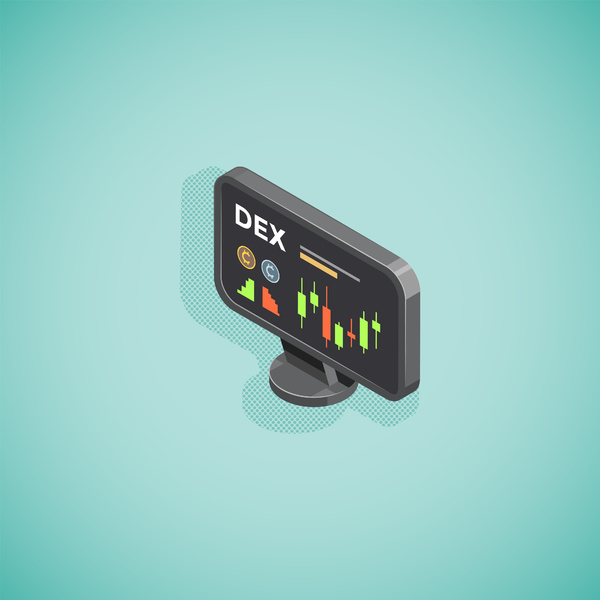
AMM is a commonly used term in DeFi, but what exactly is an automated market maker?
Automated market makers (AMMs) let individuals and professional trading counterparties provide liquidity in decentralized trading pools in order to enable transactions on the exchange. Users are rewarded with transaction fees (and protocol tokens) for contributing to the liquidity of the decentralized trading platform.
How do Automated Market Makers Work?
Centralized digital asset exchanges allow buyers and sellers to agree on a price for any asset and match these two parties together to make mutually beneficial transactions happen.
Automated market makers were created in an effort to build a more transparent and efficient decentralized financial market.
These automated trading protocols use smart contracts to help buyers and sellers find a fair price during the exchange of two different types of digital assets. Instead of utilizing an order book to pair buyers and sellers on either side of a swap, users can actually trade with a pool of tokens, also known as a liquidity pool.
In a nutshell, an automated market maker is a decentralized exchange that allows buyers and sellers to convert one digital asset for another by trading with an autonomous liquidity pool provided by other traders.
What is a Liquidity Pool?
Liquidity pools are the backbone of DeFi. They are the driving force behind many processes in the crypto space, democratizing the way deals are done and allowing individuals the right to earn rewards in exchange for supporting them.
Liquidity pools typically feature two different tokens bonded together in a trading pair, and a general rule of thumb is that more is always better when it comes to liquidity. These tokens are linked with one another in a crowdsourced pool governed by a smart contract.
Liquidity reduces the price impact after a large trade. Also, it makes it much easier to exchange two different assets in a timely manner without suffering from slippage or other issues.
Calling on users of DeFi platforms, DEXs, and AMMs to provide liquidity makes it easier for these providers to create a stable, liquid market, and the people providing liquidity are able to profit as well. As more and more people provide liquidity to AMMs and DEXs, the entire blockchain space benefits as a whole, and the world moves closer towards a decentralized financial future.
How Providing Liquidity on an AMM Can Earn You Money

Automated Market Makers cannot function without users providing liquidity into crowdsource pools of tokens. Since the very existence of an AMM depends on liquidity provision, it only makes sense that they would have to adopt incentives to reward people that help drive the entire system forward.
By participating on platforms like Uniswap and providing liquidity, people can collect part of the profit share from trading fees from trades that are happening. The easiest way to do that is to provide two separate tokens into a smart contract liquidity pool of your choice and leave them there to help swaps execute.
Users can either take profit and leave their assets staked in the liquidity pool or remove all assets at the same time. Typically AMMs payout with their own native token, which is created to represent the value that the liquidity provider has added to reward them for their assistance.
Right for you?
Providing liquidity and yield farming can be great ways to boost investment income and make your digital asset portfolio grow quicker, but they aren’t without their risks. Only risk what you can afford to lose if you decide to venture down the brave new path of providing liquidity in decentralized trading protocols.
Recommended Reading:
- Bitcoin Investing 101: What is Bitcoin? How Does it Work? How Can You Invest in It?
- Blockchain Investing 101: How to Build Long-Term Wealth in the Digital Asset Markets
- DeFi Investing 101: What Is It? Where Do You Start? What Are the Risks?
To stay up to date with all things digital assets, subscribe to Bitcoin Market Journal today

